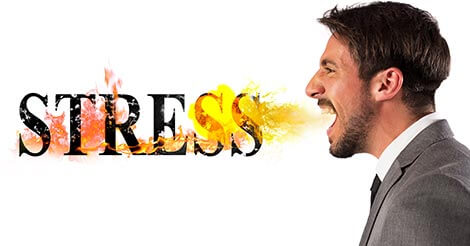What is Work Stress Disorder?
Sometimes people will feel stressed when they work too hard. Work Stress Disorder occurs when this increased work demands and pressures cannot be matched by an employee's knowledge/skill sets and their ability to cope. Work Stress Disorder is a problem that can cause many negative effects on employees.
Work Stress Disorder is the lack of coping skills and increased stress to deal with the pressure and demands of work. It leads to absenteeism and decreased performance at work and home. Workplace pressures must be met by both employers and employees in order to avoid work stress disorder.
However, work stress disorder can typically occur as a result of demanding hours, an increased workload for the same pay, and a lack of resources to complete work. Work Stress Disorder is treatable with counseling and medication. If it's not taken care of quickly, it can lead to serious health problems such as hypertension and anxiety attacks.
By working together, employers and employees can reduce Work Stress Disorder and increase productivity and employee morale in the workplace.
How does your body react to work stress?
Symptoms of work stress disorder include physical and psychological symptoms that impact an individual's health.
Often, work stress disorder can cause anxiety attacks and extreme tension; some people may cry more often than usual, while others may feel irritable or moody for no reason. Those with Work Stress Disorder usually won't sleep well and will have a hard time concentrating, which can lead to mistakes at work. Work Stress Disorder also often causes physical symptoms, such as feeling light-headed or dizzy for no reason. People with Work Stress Disorder may even have increased heart rates or panic attacks.
How can you treat Work Stress Disorder?
Work Stress Disorder is most commonly treated through medication and counseling. It is often requires the help of a work and family counselor to identify the causes of Work Stress Disorder and how it affects individuals in different areas of their life.
There are also Work Stress Disorder support groups that offer peer support and counseling outside of traditional therapy sessions. Work Stress Disorder medication is most commonly antidepressants but can also include anxiety medication.

